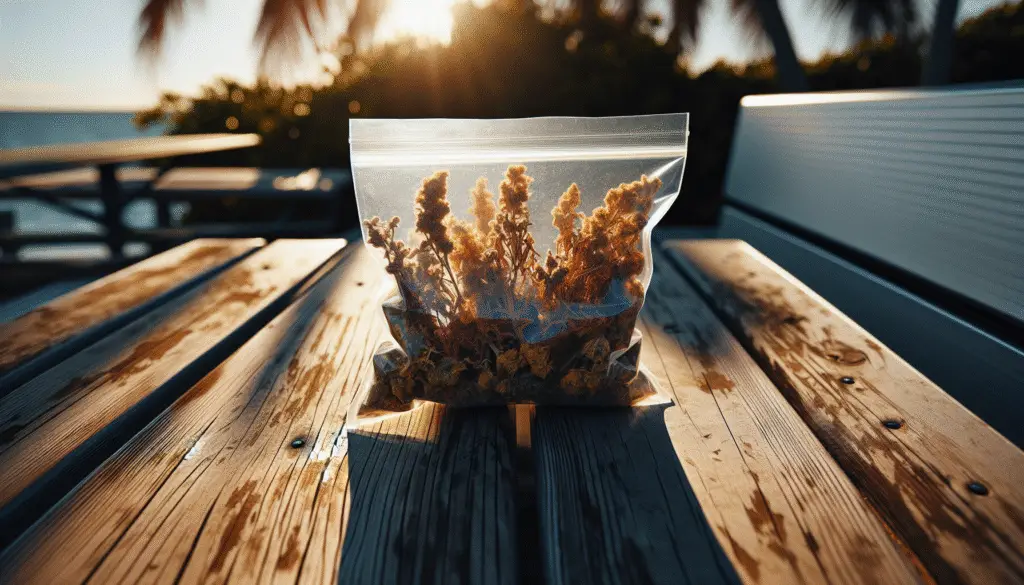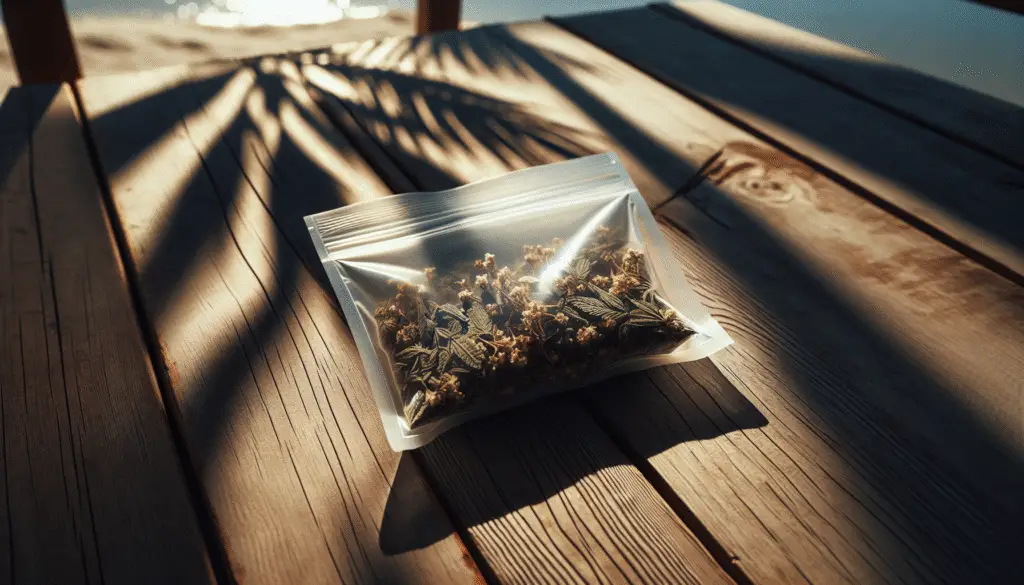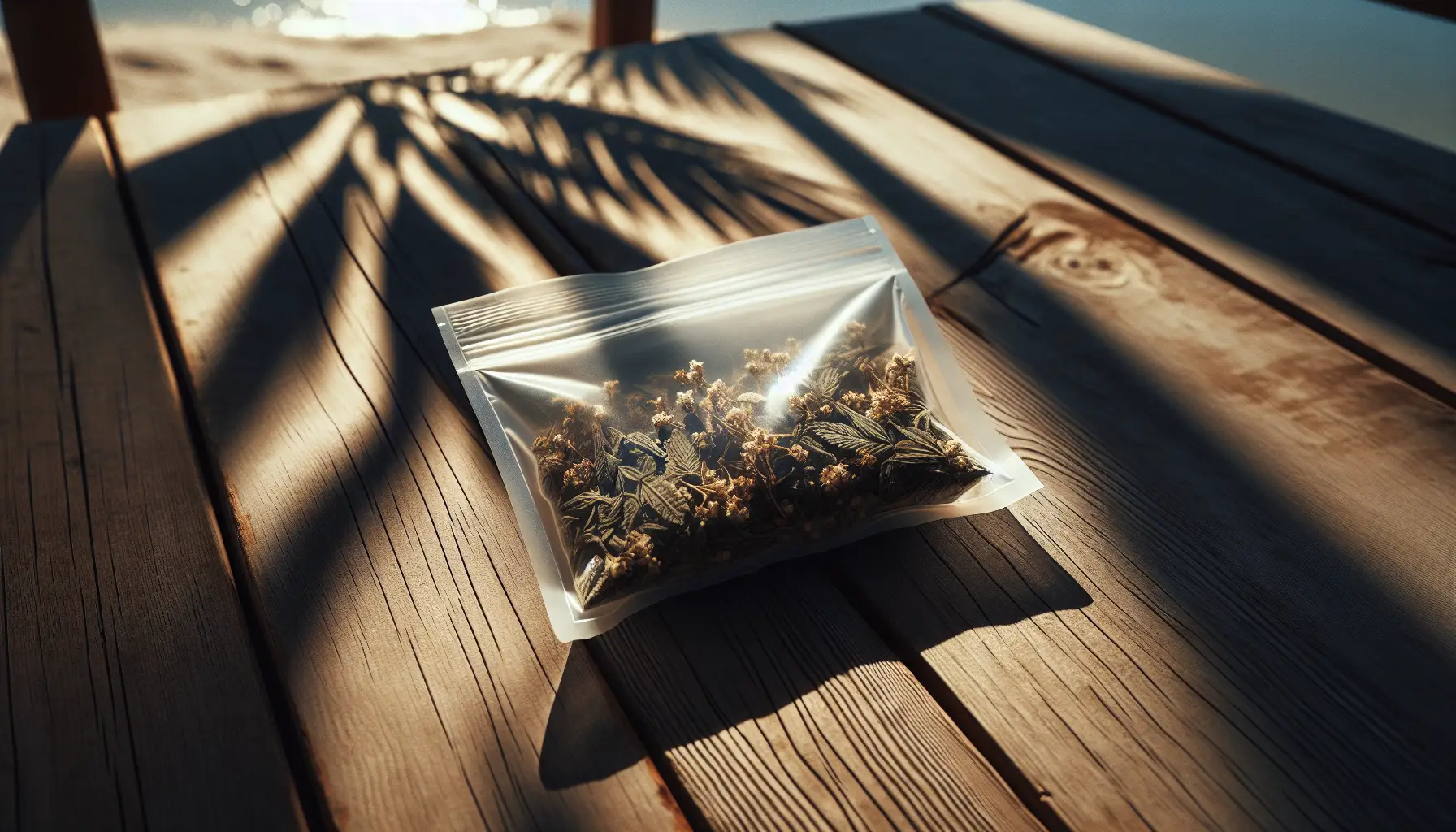What would you do if someone tried to pay for your meal with a bag of weed?

Florida Man Arrested for Trying to Pay for Fast-Food with Weed
You just read the headline: a Florida man was arrested after attempting to barter marijuana for a fast-food order at a local restaurant. This article breaks down what happened, what it means for you, and how similar situations typically play out legally and practically.
What happened?
You may be wondering how a simple attempt to buy food became a criminal matter. According to reports, the individual offered marijuana as payment for his meal, staff refused, and law enforcement was contacted. The man was subsequently arrested and charged.
You should understand that the specifics can vary: how much marijuana was involved, whether it was intended as payment or personal possession, and whether the person claimed medical use. Those details matter for how the law treats the case.
Location and timeline
The incident reportedly occurred at a local fast-food restaurant in Florida during normal business hours. Employees declined the offer and called law enforcement, who arrived, took statements, and arrested the man on site.
You should know that the timeline you read in a brief news item is usually condensed. Arrests happen quickly, but the judicial process continues for months or longer after the initial incident.
Witness and employee accounts
Employees typically describe discomfort, concern for safety, and uncertainty about how to respond when someone offers an illegal substance as payment. Some employees may call management first, while others call police directly.
You should know that employee reaction can influence how quickly law enforcement is involved and whether additional charges, like trespassing or disorderly conduct, are considered.
Legal context in Florida
You need to know the legal backdrop to understand why this was an arrest rather than a civil matter. Florida treats marijuana as a controlled substance under state law, and exchanging controlled substances—even as barter—can lead to criminal charges.
You should also be aware that Florida allows medical marijuana under specific rules for qualifying patients. However, recreational use remains illegal statewide as of the most recent legal landscape.
Possession laws for marijuana
Possession of marijuana in Florida is criminalized, with penalties depending primarily on the amount. Small amounts are usually charged as misdemeanors, while larger amounts can be felonies carrying more severe penalties.
You should always verify current statutes or consult an attorney, but generally:
- Possession of less than 20 grams is a misdemeanor in Florida, punishable by up to 1 year in county jail and fines up to $1,000.
- Possession of 20 grams or more moves the charge into felony territory, with significantly higher potential penalties.
Table: Florida marijuana possession — typical penalties
| Amount possessed | Typical charge | Possible penalties |
|---|---|---|
| Less than 20 grams | Misdemeanor | Up to 1 year in jail, up to $1,000 fine |
| 20 grams to multiple pounds | Felony | Varies by amount; prison time and larger fines (years in state prison possible) |
| Intent to distribute/sell | Felony | Heavier mandatory minimums and long sentences depending on amount |
You should treat the table as a general guide. Exact charges, sentencing ranges, and statutes can change, and case specifics—prior record, distribution evidence, and intent—affect outcomes.
Sale, barter, and intent to distribute
Offering marijuana as payment introduces potential “intent to distribute” issues. Even if no money changed hands, exchanging a controlled substance for goods can be treated like a sale or distribution under the law.
You should understand that prosecutors can interpret barter as a form of commerce involving controlled substances, and that can elevate charges beyond simple possession.
Medical cannabis vs. illegal possession
If you are a registered medical marijuana patient in Florida, you have some legal protections when possessing cannabis within program limits and following rules. However, medical status does not permit distribution or providing cannabis to others, nor does it permit use in public spaces or exchange for goods.
You should be cautious: carrying medical cannabis without your ID, exceeding allowable amounts, or attempting to use it as payment can still expose you to arrest.
Criminal process after arrest
Once arrested, you will encounter a sequence of procedures: booking, arraignment, possible bail, and court proceedings. Understanding these steps helps you navigate what comes next and how to protect your rights.
You should remember that an arrest does not equal conviction; it initiates a legal process where evidence, defense strategies, and plea negotiations determine the outcome.
Arrest and booking
When police arrest someone for possession or distribution, they typically read Miranda warnings, perform a search (if lawful), and transport the person to a detention center for booking. Booking includes taking fingerprints, photographs, and documenting alleged evidence.
You should remain calm and exercise your right to remain silent, requesting an attorney before answering questions—your responses during booking can influence charges and case strategy.
Charges, arraignment, and bail
After booking, prosecutors review evidence and file charges. You will then have an arraignment where formal charges are read and pleas entered. Bail may be set based on the severity of charges and risk factors.
You should be prepared to address bail conditions; securing legal counsel quickly helps you advocate for reasonable bail or release conditions.
Potential penalties and sentencing
Penalties depend on the charge: misdemeanors carry lighter sentences, while felonies can result in significant prison time, large fines, and long-term collateral consequences like loss of certain rights or difficulty finding employment.
You should know sentencing can be influenced by criminal history, whether intent to distribute is proven, and whether mitigating factors (e.g., medical use) are accepted in court.
Common defenses
Defenses might include lack of intent to distribute, medical necessity, unlawful search and seizure (suppression of evidence), and mistaken identity. A skilled attorney will evaluate the evidence for procedural errors or constitutional violations.
You should consult legal counsel immediately if arrested; viable defenses often require timely preservation of evidence and rapid legal action.
How merchants and employees should respond
As an employee or manager, you need clear, safe policies that protect staff, customers, and the business. Handling offers of illegal payment requires a balance of de-escalation, policy enforcement, and lawfulness.
You should train staff to follow procedures that minimize risk while ensuring compliance with the law and company policies.
Accepting unusual payment: legal and safety considerations
You are not legally required to accept cashless or barter transactions that involve illegal items. Accepting controlled substances as payment is illegal and can implicate the business in criminal activity.
You should refuse any payment that involves controlled substances and call management or law enforcement if you feel threatened or if the offer persists.
Table: Steps for employees when offered illegal payment
| Step | Action | Why it matters |
|---|---|---|
| 1 | Politely refuse the offer | Keeps interaction civil and non-confrontational |
| 2 | Ask the customer to leave if they are noncompliant | Protects staff safety and business environment |
| 3 | Notify a manager immediately | Management can decide next steps and contact law enforcement |
| 4 | Call police if there is a threat or illegal activity continues | Law enforcement handles criminal enforcement |
| 5 | Document the interaction (time, description) | Useful for police reports and potential legal proceedings |
You should make sure employees understand when to call police versus when to involve management, and you should provide training on keeping themselves safe.
Policies for restaurants and fast-food outlets
You will want written policies that clearly state what forms of payment are acceptable and how employees should respond to illegal or unusual offers. Policies should include de-escalation techniques and when to contact law enforcement.
You should include regular training and role-playing to prepare staff for uncomfortable or potentially dangerous situations.
Public safety and health concerns
When controlled substances enter public spaces, there are health and safety implications. Issues include drug use in dining areas, secondhand smoke, and potential impairment affecting behavior or driving.
You should be mindful that public consumption of cannabis is often illegal and can expose both the user and bystanders to health and safety risks.
Impaired driving and related risks
If a person consuming marijuana becomes impaired and drives, that creates serious legal and safety consequences. DUI laws can apply to impairment by drugs as well as alcohol.
You should avoid driving while impaired and know that law enforcement uses field sobriety tests and chemical testing to assess impairment.
Public consumption and possession limitations
Many localities and states explicitly ban smoking or consuming cannabis in public. Even medical patients must comply with restrictions regarding where they can use medication.
You should always check local laws about consumption and keep cannabis in a sealed container when transporting it lawfully.
Social perception and the “Florida Man” trope
You may have seen a flurry of headlines under the “Florida Man” label—stories that highlight unusual, bizarre, or criminal behavior in Florida. Those headlines shape perception, but they don’t reflect the full legal or human reality.
You should recognize that stigmatizing language can oversimplify complex legal and social issues. Each case deserves fair analysis rather than a punchline.
Media coverage vs. legal nuance
News stories often focus on sensational details, skipping deeper legal context such as medical status, amount, prior record, or mitigation. That can lead you to misunderstand the seriousness or legal basis for an arrest.
You should seek out complete information, including follow-ups and court documents, if you want an accurate picture of the legal situation.
How to avoid legal trouble if you use marijuana
If you are a user—whether medical or otherwise—you should take precautions to avoid legal complications. That includes following registration rules, carrying documentation, and avoiding public consumption.
You should be proactive about compliance: know the law, keep proofs of medical authorization when applicable, and never offer cannabis as payment.
For medical cannabis patients
If you qualify for medical cannabis, register with the program and carry your medical marijuana card or documentation. Keep your supply within limits set by the program and avoid giving or selling any of it.
You should also follow packaging and storage recommendations and remember that medical use does not allow distribution or public consumption.
General safety tips for anyone possessing cannabis
- Keep cannabis stored securely and out of reach of minors.
- Do not carry more than legally allowed amounts.
- Do not attempt to barter or exchange cannabis for goods or services.
- Avoid using cannabis in public or in places where it is prohibited.
You should make good decisions about possession and transfer to minimize legal risk.

What to do if you or someone you know is arrested in this type of situation
Arrests can be disorienting. Knowing immediate steps helps you assert your rights and manage the situation more effectively.
You should take the following actions if an arrest happens:
Immediate steps after arrest
- Remain calm and be polite; resist the urge to argue.
- Invoke your right to remain silent beyond identifying information.
- Ask for an attorney and stop answering substantive questions until counsel is present.
- If detained, request bail information and instructions for contacting family or bonds services.
You should use these steps to protect your rights and give your attorney the best chance at an effective defense.
Handling legal representation and bail
Secure a knowledgeable criminal defense attorney promptly. Bail can often be posted or arranged through bondsmen; your attorney will advise you on options based on charges and prior record.
You should keep detailed notes of everything that happened and give that information to your attorney to support the defense.
Possible long-term consequences beyond criminal penalties
Even if you avoid jail time, arrests and convictions can have lingering effects: difficulty finding employment, loss of benefits, housing hurdles, and social stigma. A conviction can also affect immigration status for non-citizens.
You should consider long-term planning: ask your attorney about diversion programs, plea bargains that avoid convictions, or expungement possibilities where available.
Diversion and pretrial programs
Some jurisdictions offer diversion, treatment programs, or conditional discharge for certain offenses—particularly for first-time offenders or cases involving substance use disorders.
You should explore those options with legal counsel; they may provide a path that avoids lasting criminal records.
Prevention measures for businesses and communities
You can reduce the incidence of similar incidents through policies, community outreach, and training. Businesses should adopt clear payment policies and staff training, while communities can invest in substance use education.
You should consider community-level responses that address substance use compassionately and reduce criminal behavior through support services rather than purely punitive measures.
Training topics that help staff
- Recognizing risky or suspicious behavior
- Nonconfrontational refusal techniques
- When and how to contact management and police
- Documentation and incident reporting
You should ensure training is updated regularly and that managers reinforce policies through practice and accountability.
Legal alternatives to barter with controlled substances
You may be tempted to barter when cash is low, but swapping controlled substances for goods is illegal. If you are facing financial hardship, consider legal alternatives such as community food assistance, prepaid debit cards, or asking the restaurant about their payment policies or assistance programs.
You should avoid illegal exchanges and instead use legitimate resources and programs available in your area.
Frequently asked questions (FAQs)
You probably have questions about how this applies to you or others. The following addresses common queries.
Can you legally barter goods or services for marijuana in Florida?
No. Bartering controlled substances is treated like distribution and is illegal. Exchanging marijuana for goods or services can lead to charges similar to selling or trafficking, depending on the circumstances.
You should avoid offering marijuana as payment.
Does medical marijuana protect you from arrest if you offer it in public?
No. Medical marijuana status does not give you the right to distribute or barter cannabis. Public consumption or offering it in exchange for goods can lead to arrest.
You should follow the rules of the medical program and keep usage private and lawful.
What if the amount is small—like a gram?
Even small amounts can lead to misdemeanor charges, especially if offered as barter. While penalties for small amounts are comparatively lighter, an arrest still carries consequences.
You should not assume small quantities are harmless or ignored by law enforcement.
Can a restaurant press charges if you offer weed as payment?
Restaurants generally contact police when they encounter criminal activity; they can file complaints or cooperate with law enforcement, which can lead to arrest and prosecution.
You should understand that businesses typically seek to protect employees and customers, and they may involve authorities when illegal offers are made.
Is it ever a civil matter rather than criminal?
Sometimes situations involving small exchanges can be handled without arrest, especially if no criminal intent is found or if law enforcement decides not to pursue charges. However, offering a controlled substance as payment creates criminal risk.
You should assume criminal risk exists and act accordingly.
Practical scenarios and what you would do
Here are some common scenarios and practical steps for you to take if you encounter or are involved in a similar situation.
Scenario: You are a manager and an employee calls you
Calmly gather information and assess safety. If the customer becomes aggressive, call police. Document the event and follow company policy for incident reporting.
You should prioritize employee safety and clear documentation for any subsequent law enforcement or legal needs.
Scenario: You are a customer and someone offers you weed as payment
Politely refuse and protect your safety. If you feel threatened or the individual becomes insistent, notify staff or call police.
You should never accept illegal substances or assist in their exchange.
Scenario: You are the person offering weed because you lack money
Stop and choose a lawful alternative. Ask for assistance, a to-go option you can pay later for, or reach out to community resources for help with food insecurity.
You should avoid criminal behavior and seek legal, safer solutions to your needs.
Resources and where to find help
If you or someone you know faces similar charges, you should reach out to appropriate resources: criminal defense attorneys, public defenders (if you qualify), and community legal aid. For substance use issues, local health services and treatment programs can offer support.
You should collect contact information for emergency legal help and local support organizations before an incident occurs, if possible.
Conclusion
You may have felt surprised or amused by the headline, but the incident underscores practical and legal realities: offering controlled substances as payment can trigger criminal charges, affect livelihoods, and create public safety concerns. Whether you are a customer, employee, or manager, knowing how to respond—legally, safely, and compassionately—matters.
You should prioritize lawful behavior, protect your rights if confronted by law enforcement, and seek legal counsel promptly if arrested. Practical measures—such as clear business policies, staff training, and community resources—can prevent incidents and reduce harm for everyone involved.
